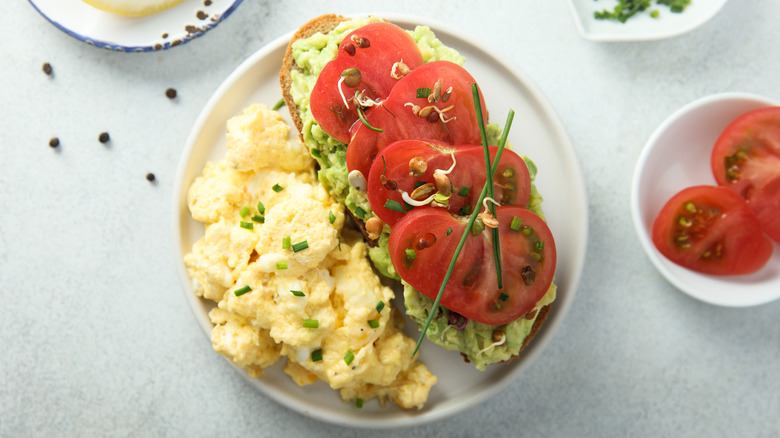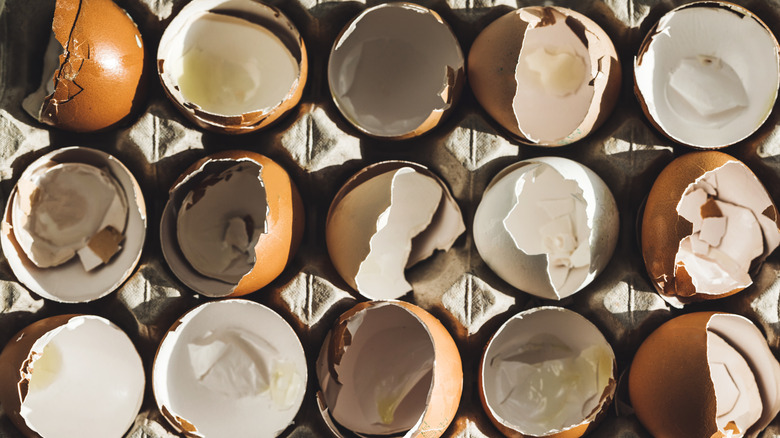Is It Dangerous To Reheat Scrambled Eggs?
Freshly scrambled eggs are so delicious that chances are you won't be stuck with any leftovers. In the rare case that you've cracked one too many eggs, you may want to save those leftovers for later. Since cooked foods taste better when they're warmer, you're probably going to want to heat those cold scrambled eggs sitting in the fridge, but what about the rumors that reheating eggs can be risky?
Scrambled eggs are made from whisking together eggs and adding them to a pan that's been coated with a bit of oil or butter, stirring to create that classic scrambled texture. Adding ingredients like sour cream, crème fraîche, cream cheese, or herbs is common. Some even swear by secret ingredients like a splash of ice water, a glug of seltzer, or a pat of peanut butter to make scrambled eggs fluffy (via Insider). However, starting with quality ingredients is key.
Apart from size, The Pioneer Woman explains that eggs can be divided into grades to indicate quality, as well as designations that describe how chickens are raised. Oddly, while many reach for chicken eggs, there are other egg-producing birds like turkeys, ostriches, quails, ducks, and even geese. However, Slate suggests that lacking availability and high price-point is why exotic varieties aren't typically used. Regardless of the egg variety, reheating has been a topic of confusion for many, but we're here to help!
The only real danger is overcooking your eggs
Don't believe any of the clickbait. Reheating eggs is not toxic. While it's best to serve cooked eggs or any food containing eggs immediately after cooking, the FDA explains that cooked eggs can be refrigerated for later but should be thoroughly reheated to 165 Fahrenheit before serving so as to kill any germs and bacteria and reduce the risk of foodborne illness.
That said, reheating leftovers can be tricky — primarily because it tends to change a food's texture, flavor, and nutritional content. However, the main danger in reheating eggs according to Healthline is that they can become rubbery and dry. To avoid overcooked eggs, gentle heat is detrimental.
Whether using a microwave or stove, Livestrong recommends adding a bit of moisture to the eggs to sort of steam the leftovers, making sure to drain any excess liquid that may have pooled in the pan or bowl. Another foolproof hack to avoid overcooked eggs, as reported by Pantry & Larder, is to place your leftover scramble in a zip-lock bag and let the eggs warm in a bowl of hot water for about five to 10 minutes. All that's left to do is enjoy!

